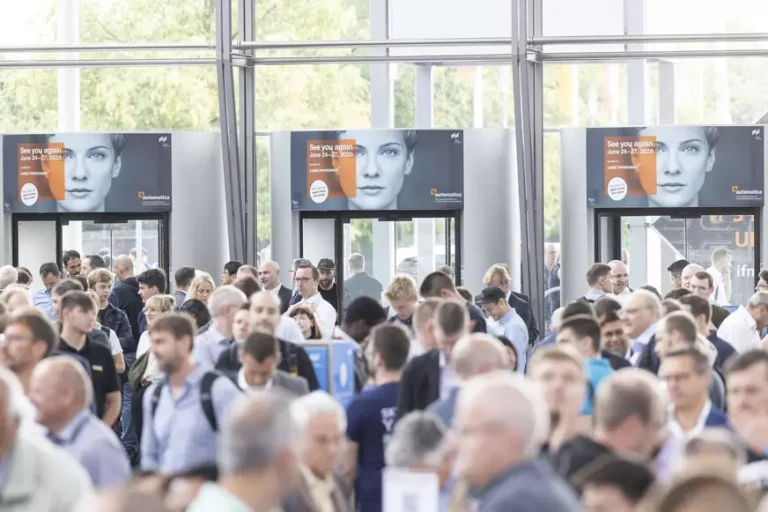A growing majority of German workers are welcoming the integration of robotics in industrial environments, driven by a desire to enhance competitiveness and reduce workplace risks. According to the 2025 automatica Trend Index, 77% of German employees believe that robot deployment is essential to maintaining Germany’s industrial edge, while 80% support robotics taking over dangerous, repetitive, or unhealthy tasks.
The index, based on interviews with 5,000 employees across Germany, China, Japan, the U.S., and the U.K., highlights a clear global shift in workforce attitudes toward automation—with Germany standing out as particularly enthusiastic.
Robots Seen as Key to Addressing Labor Shortages
The results come as Germany contends with a shortage of skilled labor, especially in manufacturing. 75% of German respondents believe that robots can help fill this critical gap, allowing production to remain local and sustainable. In comparison, approval is even higher in China (80%), while the U.S. trails behind with only two-thirds of workers expressing the same view.
“Robotics and automation have great potential in tackling the lack of specialists and improving work environments as they take on unpopular tasks”, says Dr. Dietmar Ley, Head of the VDMA Robotics + Automation Association.
Robots for Safety and Quality of Work
The index also reveals overwhelming support for robotics in improving workplace safety and longevity:
- 85% believe robots reduce the risk of workplace injury.
- 84% say robots are essential for handling hazardous materials.
- 70% think robotics can help older workers remain in the workforce longer.
This trend signals a broader shift toward “collaborative robotics” and “human-robot co-working”, especially as companies seek to automate unpopular tasks without eliminating jobs.
Falling Behind: Germany Slips in Global Robot Density Rankings
Despite domestic support, Germany has slipped to fourth place in the global rankings for industrial robot density, now behind China (470 units per 10,000 workers), which has doubled its figures in just four years. Germany (429 units) now follows South Korea and China, with Japan (419) close behind.
Automatica 2025 Focuses on AI and SME Integration
Held from June 24–27, automatica 2025 responded to these trends with a strong emphasis on AI-powered robotics, humanoid robots, and plug-and-play solutions tailored for small and medium-sized enterprises. More than 750 exhibitors from 40 countries showcased technologies that simplify integration, cut costs, and minimize training needs.
Dr. Reinhard Pfeiffer, Managing Director of Messe München, noted,The German industry is facing a multitude of challenges. At automatica, around 750 exhibitors from about 40 countries present workable solutions across six exhibition halls. Being a leading international marketplace for automated and smart production, automatica is the perfect platform to engage in knowledge transfer and get inspired.”



 Share your Details for subscribe
Share your Details for subscribe